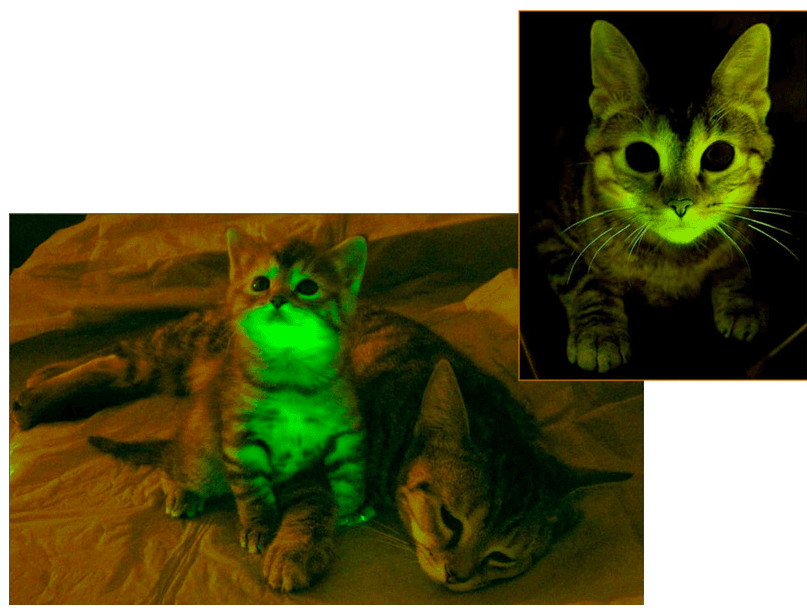Researcher creates fluorescent cats for AIDS study
The green glow of this kitten is evidence that it has a unique set of genes, inserted by scientists
A U.S. researcher has genetically engineered a litter of glow-in-the-dark cats to help scientists shine some light on the problem of fighting AIDS.
In his study, based at the world-renown Mayo Clinic in Rochester, Minn., researchers used a virus to insert a gene that resists AIDS into the egg cells of cats. The cells were then transferred to a surrogate mother cat, who gave birth to the litter.
PHOTOS: Glow-in-the-dark animals in the name of science
According to BBC News:
The antiviral gene comes from a rhesus macaque, and produces a protein called a restriction factor that can resist Aids-causing viruses affecting other animals.
In both humans and cats, proteins called restriction factors that normally fight off viral infections are defenseless against HIV and FIV because the viruses have evolved potent counter-weapons.
But certain monkey versions of these restriction factors are capable of fighting the viruses.
Along with the AIDS-resistant gene, researchers inserted a gene that produces a fluorescent protein that makes cells glow green under ultraviolet light.
"We did it to mark cells easily just by looking under the microscope or shining a light on the animal," Dr. Eric Poeschla, lead researcher of the study, told BBC News.
Cats are the only mammals besides humans and chimpanzees that have a naturally acquired AIDS virus. Feline immunodeficiency virus, or FIV, causes feline AIDS and infects 1 percent to 3 percent of cats worldwide, mainly feral cats, according to Time Magazine.
“Understanding how to confer resistance is … of equal importance to cat health and human health," Dr. Robin Lovell-Badge, head of developmental genetics at the London-based Medical Research Council’s national institute for medical research, told the Guardian.
In the study so far, the researchers have successfully demonstrated that viruses can be used to insert FIV-blocking genes into the eggs of carnivores, Time Magazine reports. The scientists tested cells taken from the cats and found they were resistant to FIV, according to BBC News. But the big test lies ahead: At some point they will expose the cats to the feline aids virus to see if it affects them.
We want to hear your feedback so we can keep improving our website, theworld.org. Please fill out this quick survey and let us know your thoughts (your answers will be anonymous). Thanks for your time!
